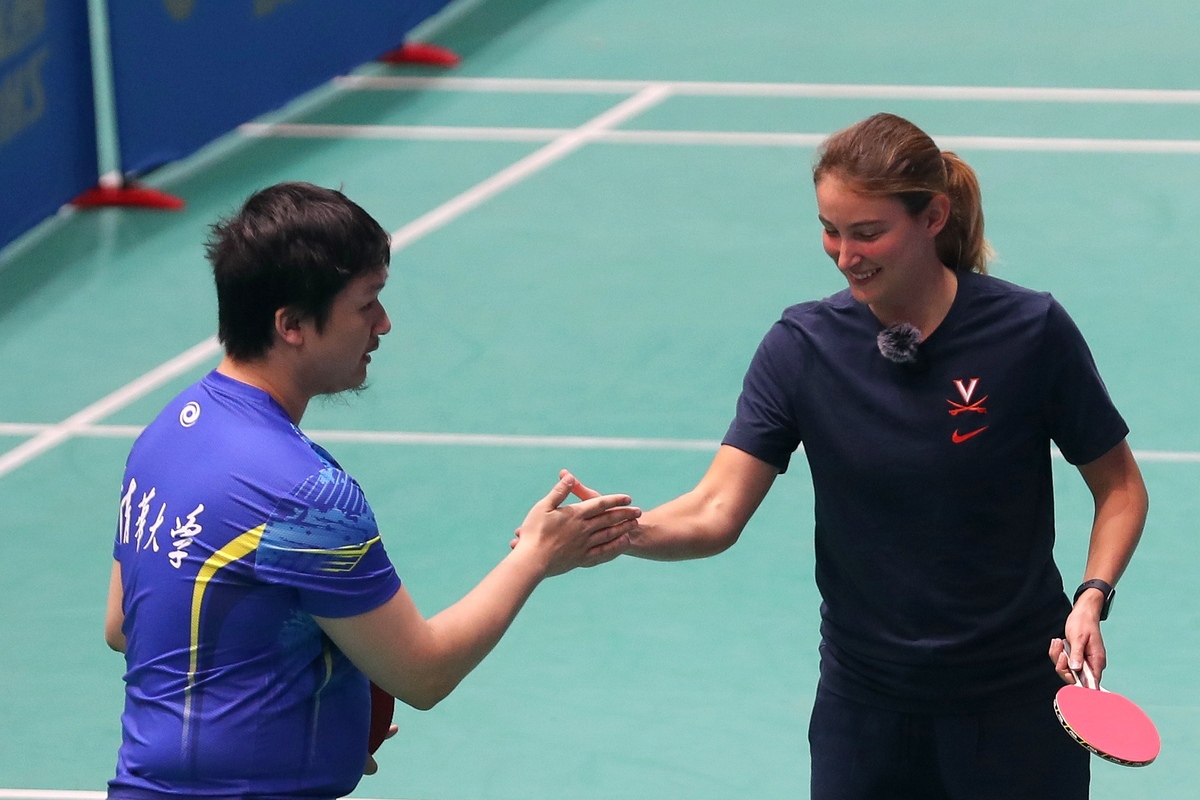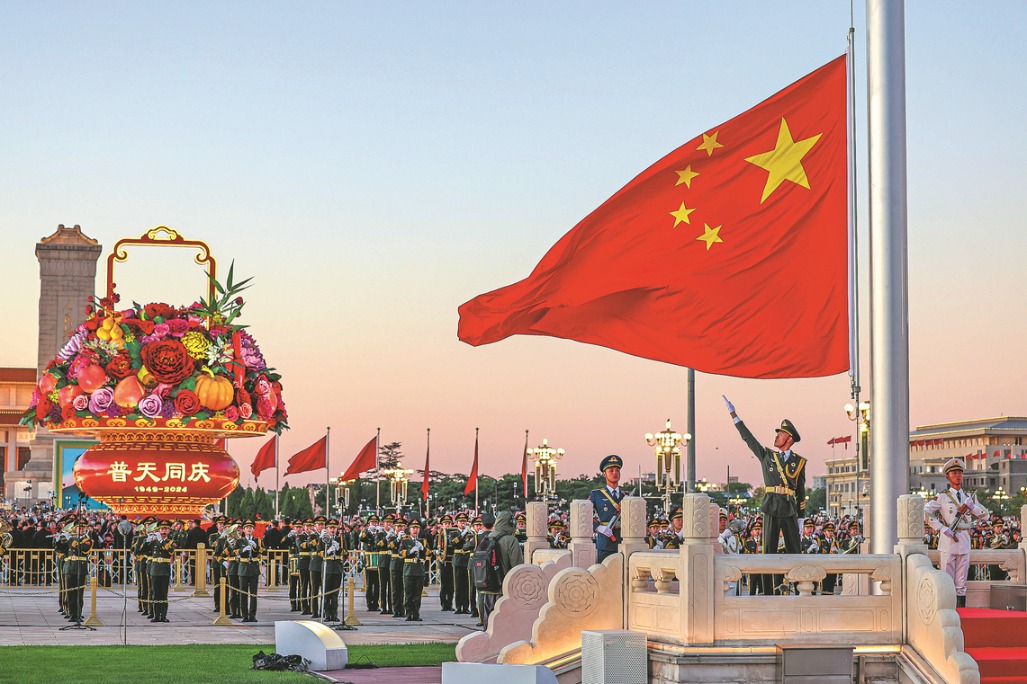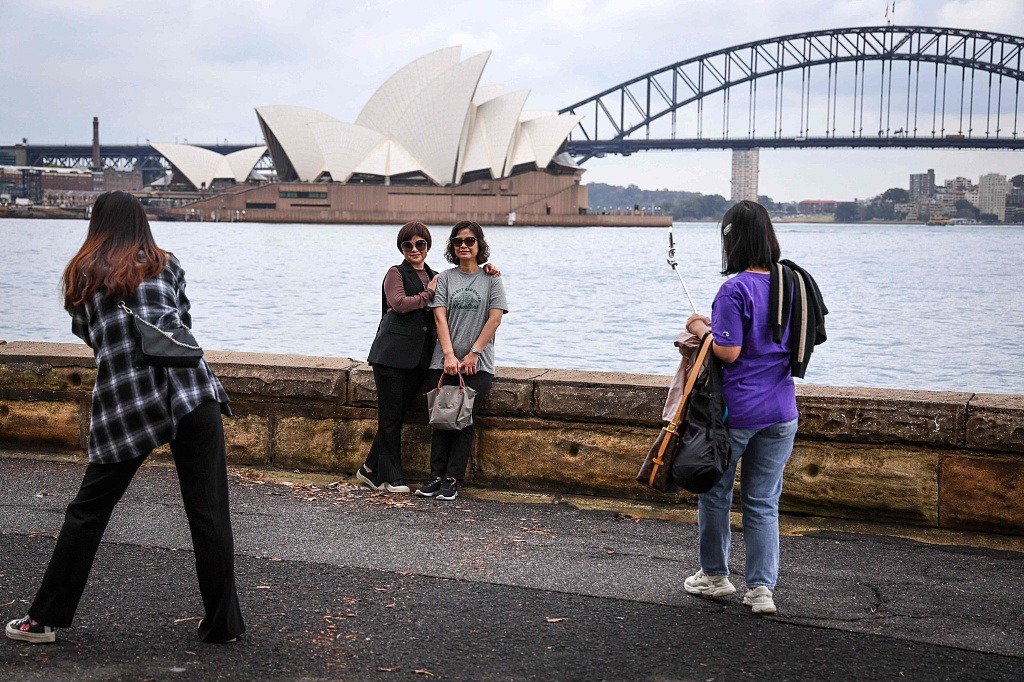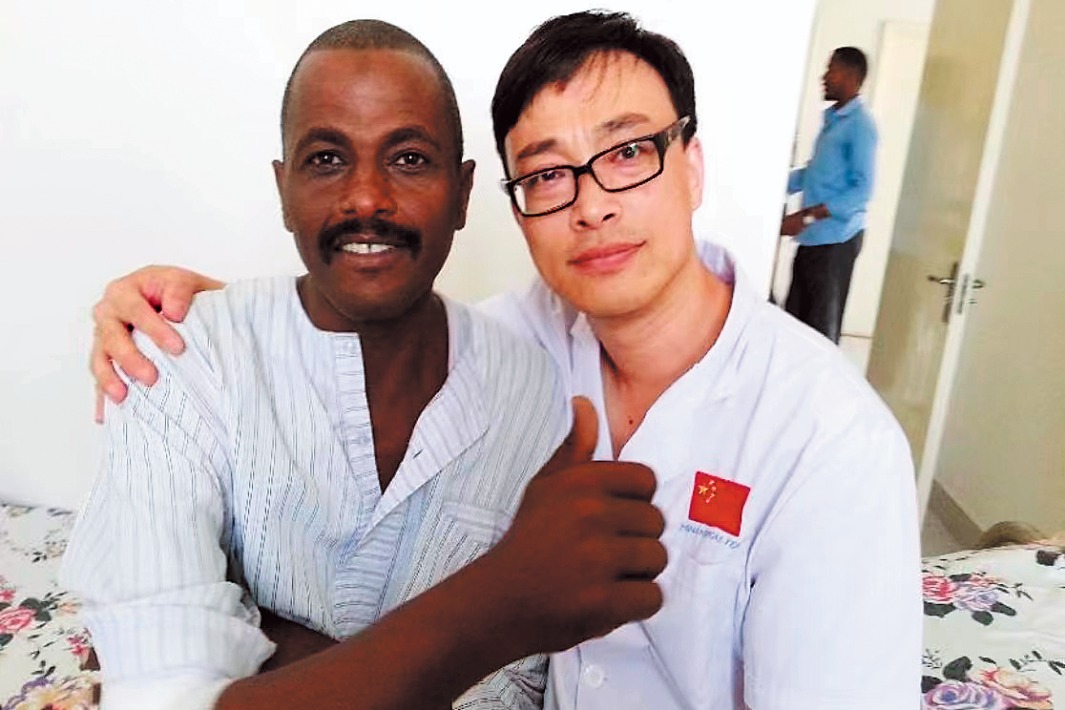Youths revisit Ping-Pong Diplomacy
By MO JINGXI | chinadaily.com.cn | Updated: 2024-01-07 23:15

Abdullah Aljerjawi clenched his fist and said "yes!" when his table tennis partner, Tao Chang, got the last point of the game with a nice drive.
The mixed doubles players, who had met each other for the first time just half an hour before their game in a stadium at Tsinghua University in Beijing on Saturday morning, won four matches out of five.
Aljerjawi, an undergraduate from the University of Virginia in the United States, and Tao, from Tsinghua University, were participants in a China-US youth table tennis exchange, the first such event held in China between the two countries since 2019.
Liang Geliang, who was in the audience on Saturday and was a witness to the China-US Ping-Pong Diplomacy in 1971, said he was the same age as these students when he practiced table tennis with US table tennis player Glenn Cowan in Nagoya, Japan.
More than 50 years ago, it was Cowan's chance encounter on a bus with the Chinese table tennis team that set the stage for the eventual establishment of diplomatic relations between China and the US on Jan 1, 1979.
"I believe that playing ping-pong is a good opportunity for mutual learning and exchange. Back in the 1970s, the tiny ping-pong ball opened the gate for China and the US. Today, I still hope that young people from both countries can enhance friendship through this sport," Liang said.
Stephen Mull, vice-provost for global affairs at the University of Virginia, is leading a group of 12 undergraduates from the university on a nine-day visit to China, with the purpose of creating opportunities for young people from the US and China to get to know one another through friendly ping-pong competition.
The students started their trip in Hong Kong, where the US table tennis players first landed in 1971 after receiving a surprise invitation from the Chinese government.
From Beijing, the group will take a high-speed train to Shanghai this week.
"When there are so many disagreements between the US and China, we have to find those places where we agree, and people-to-people exchange is absolutely such a field," Mull said.
During their meeting in San Francisco in November, President Xi Jinping and US President Joe Biden reiterated the importance of people-to-people exchanges between the two countries. Xi told Biden that China hoped to welcome 50,000 young people from the US over the next five years for exchange and study programs.
"We are building these people-to-people relations following in the footsteps of Biden and Xi," said Misa Layne, from the University of Virginia. As the daughter of a US diplomat, Layne was born in Beijing but, after leaving with her family in 2010 at the age of 5, had not had a chance to return to China until now.
Layne said she didn't know too much about the history of Ping-Pong Diplomacy before going on the exchange trip. "It's really been an enlightening experience, and I hope to influence my UVA peers to start coming to China more for future exchanges."
Aljerjawi said he was the only one in the delegation who had no previous ties to China, since he doesn't speak Chinese or know anyone in the country.
However, being passionate about table tennis, Aljerjawi applied for the program without hesitation, even though his friends had tried to make him think twice, given the tensions between the US and China.
"I told them we cannot make a judgment until we go. And I'm open to the new experience of being in such a beautiful place with ancient culture and buildings," he said.
It has turned out that not knowing the Chinese language hasn't been a problem for Aljerjawi, because he has the language of table tennis to bond with others.
"I think sports in general is a language on its own. But the unique thing about ping-pong is that it quite literally brings people to the table," he said.
























